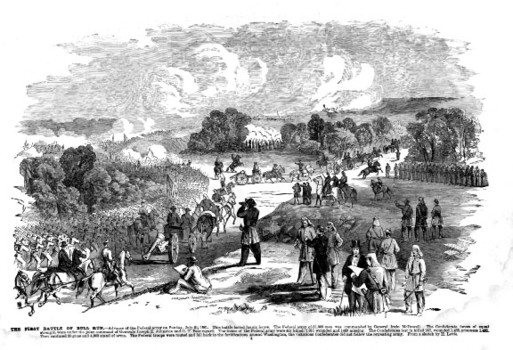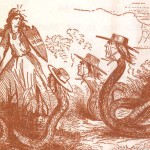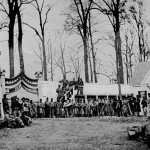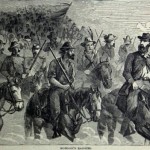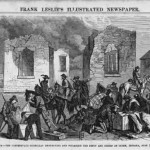Modern war is fought on television and the Internet, with instantaneous coverage available around the world; those who waited on the home front of the Civil War lived, in contrast, in anticipation and in dread, both for news of the great battles and for the rolls of the wounded and the dead.
Civil War historian James McPherson describes the spring and early summer of 1863 as a time when “Northern morale descended into the slough of despond” over the progress of the war. Grant was still mired in the siege of Vicksburg; the Union had lost the Battle of Chancellorsville to Lee; and by the end of June it became clear that the South had massed its forces to invade Pennsylvania and once again attempt to take Baltimore—and then Washington, D.C.
Citizens of Marshall County, in northern Indiana, read their weekly newspapers with great anticipation. The Marshall County Republican, published in the county seat of Plymouth, supported the Lincoln administration and Governor Oliver Morton, and every Thursday printed as much news of the war as it could fit into its pages. In the July 3 issue, the headlines were ominous: under the headline of “War in the East,” readers saw subtitles including “The Occupation of Pennsylvania” and “Baltimore Believed in Danger.” The editors recounted a June 29 report from Philadelphia that the “whole rebel army except Stuart is now in Pennsylvania. The rebel officers say they are determined to make Pennsylvania the future battle field.”
While Hoosiers read these predictions, the Battle of Gettysburg was in its third and final day. On July 6, the Chicago Tribune was still uncertain as to the outcome, printing a subtitle “Conflicting Statements as to Results” to accompany its early accounts of the battle. By July 9, when the Marshall County Republican printed its next issue, the situation was more clear. Under a picture of a waving flag, the editor announced: “Glorious News!” and then explained that “We publish glorious news to-day from Vicksburg, Helena, Tennessee and Pennsylvania.” Three columns on the first page told the story of what had occurred at Gettysburg, and the newspaper predicted that “the rebels must soon ground their arms and submit to the Federal authority.”
Source: Marshall County Republican, July 2 and 9, 1863 (online at the Library of Congress’s Chronicling America)










